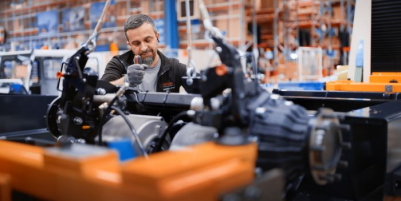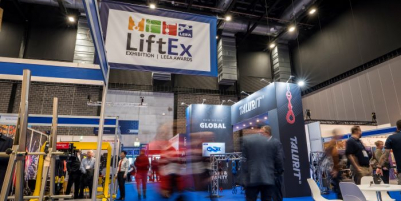-
Rite-Hite unveils new range of hydraulic kits to upgrade and extend dock leveller performance - 2 days ago
-
REWE and Cimcorp automate fresh supply chain for Berlin supermarkets and stores - 2 days ago
-
Q1 – A recovery period or time to fix, switch and scale? - 2 days ago
-
NULOGY’S SHOP FLOOR SOFTWARE TO POWER COMPLETE CO-PACKING’SOPERATIONS - February 13, 2026
-
Why lead generation depends upon good content - February 13, 2026
-
Wallapop and Albatross Sign Strategic Partnership to Bring Real-Time AI Discovery to the Future of Consumer-to-Consumer Commerce - February 12, 2026
-
Thorworld ramp helps Hubergroup to streamline its unloading operation - February 6, 2026
-
TRACKER INNOVATION FROM QUECLINK TO BOOST STOLEN VEHICLE RECOVERY PERFORMANCE - February 4, 2026
-
Flexi Narrow Aisle hits 50! - January 29, 2026
-
DERRY BROS ATTRACTS RECORD NUMBERS OF FREIGHT CUSTOMERS SEEKING CUSTOMS SUPPORT - January 29, 2026
Currently on the campaign trail in the run-up to the forthcoming general election in New Zealand, the country’s Prime Minister, Chris Hipkins, got a close-up view of LiBiao Robotics’ automated parcel sorting technology when he was guest of honour at a recent event held to mark the opening of leading homeware retailer Kmart’s new distribution hub.
The 40,0000 square metre site will service the long-term needs of Kmart’s stores and online customers across the North Island of New Zealand. The new distribution centre will supply 26 Kmart stores and fulfil website orders for affordable homeware, furniture, electronics, toys and children’s clothing direct to internet shoppers.
This is not the first installation that LiBiao Robotics has undertaken on behalf of Kmart in New Zealand. In May 2021 a high throughput LiBiao Robotics automated mobile robot solution went live at another Kmart distribution and fulfilment centre facility in Christchurch.
Sustainability is built into the new site – not only in the construction materials used but also the site’s operational processes – and the environmental benefits offered by the LiBiao Robotics sortation robots was a big influence on the company’s decision to opt for a robotic solution.
With a typical LiBiao Robotics robot using just 30 watts of power an hour – approximately the same as a small indoor table lamp – the system is notably more energy efficient than a conveyor-based sortation solution.
Robotic sortation systems also deliver human resources-related benefits – particularly in developed countries with a low population density. For example, with approximately 20 people per square kilometre, labour costs can be high in New Zealand. But thanks to the fact that robotic sortation solutions require very little human interaction, the wage bill is kept to a minimum.
In addition, with a robotic system it is not necessary to recruit extra personnel when the time comes to expand a site’s sorting capacity – it is simply a matter of introducing additional robots as required. With the price of a LiBiao Robotics robot being equivalent to a single warehouse worker’s monthly pay in some countries, the potential for cost savings is obvious.

































